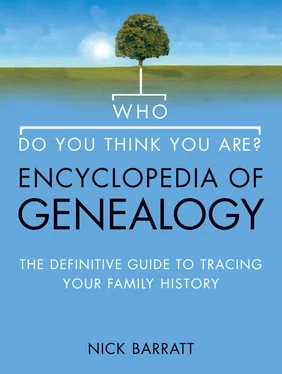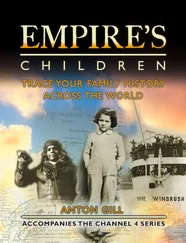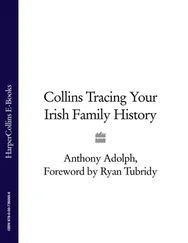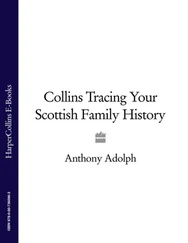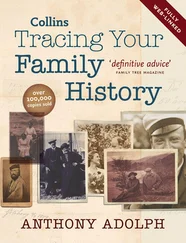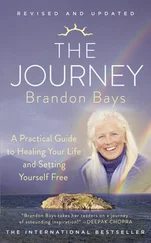There is likely to be more than one society that can assist you with your investigation, and the more you join, the wider your network will be when you do need advice.
Lectures, Courses and Workshops
If you find you have a burgeoning passion for family history and want to immerse yourself from the very beginning in all the research skills you’ll need, it might be worth investing in an Adult Education programme or Workers’ Educational Association course. These range from full-time courses to evening classes and are advertised by local libraries, colleges and some universities. The Institute of Heraldic and Genealogical Studies (IHGS) promotes its own genealogy courses on its website at www.ihgs.org.uk. Obtaining a diploma or certificate in family history will not only help you to fully understand the more complex aspects of genealogy, but will be a good investment for the future if you decide to go on to teach the subject to others. Indeed, many universities now offer distance learning courses in the subject, as well as qualifications at degree level.
‘ Archives run induction days, lectures or tutorials at both local and national level, often with a particular theme as the focus .’
Archives also run induction days, lectures or tutorials at both local and national level, often with a particular theme as the focus. Some archives publish details on their websites of the tutorials that are planned for the forthcoming year, as do other organizations.
The Society of Genealogists holds lectures on the documents that can be found for various types of occupation and circumstances, from researching ancestors in the brewery industry to finding out if your great-great-grandfather was sent to debtor’s prison. Lectures held at the SoG usually explain how to locate original documents from a few different archives if the relevant sources are not all held in one place. Booking your place at a lecture not only gives you the opportunity to ask the speaker specific questions they may not have covered in their talk, but you also get to meet other researchers who are interested in the same topic, so you can discuss ideas and problems with others after the talk.
Some professional genealogists and historians organize day-long workshops at archives using case studies to illustrate how to go about ordering and interpreting original documents at the archive. You should keep an eye out for advertisements for these workshops in family history magazines and local newspapers, and your family history society should be able to update you with the main events in the calendar. Although they usually cost quite a bit more than an hour’s seminar, these workshops are worth the money if you are having serious difficulties, because they offer a far more comprehensive lesson on researching the subject.
Many organizations, such as the Federation of Family History Societies, hold annual conferences which include keynote speeches, workshops and seminars where you can also learn a great deal about the subjects you are researching. There are also regular annual family and local history day events run by regional family history societies and groups, as well as the annual National History show in which family history features prominently, including the Society of Genealogists’ family history fair, and of course the Who Do You Think You Are? Live stage.
The last port of call if you really cannot overcome a research problem should be to turn to the professionals. It might also be worth paying somebody to research specific documents in an archive that is far away from where you live if it works out to be more costly to travel there yourself. There are many professional genealogists with years of experience working in archives who provide their services at a charge. Because very few archives offer their own research service, most will have a list of private researchers who have a thorough knowledge of their records. The National Archives has a list of independent researchers on its website where you can browse each person’s area of expertise and find contact details.
When approaching a professional researcher for a quote, you should always try to be as clear as possible about what you know already, what is fact and what is hearsay, and what you are hoping they will find out for you. It is better that you give too much information rather than too little to ensure they do not cover work you have already done yourself. However, you do not need to give them your entire family tree if you are only asking them to help you with one branch, especially as some researchers will charge you for the time it costs them to read through all your notes.
Sources of offline help:
• Check out reference books at your local library
• Agony aunts in genealogical magazines and journals can help with research queries
• Family and topic-specific history societies provide local indexes, networking opportunities and expertise
• Courses, tutorials and workshops can give in-depth help and tips on particular subjects and archive collections
• Professional researchers
A lot of professional researchers charge by the hour, though some will have a daily fee. If you do want to go down this route, shop around to get some quotes before going with the first researcher you find, and make sure a set number of hours or a price is agreed before you commission them to go ahead with the work. While most researchers will advise an estimated quote for a job, it can be very difficult to judge exactly how long it will take to get to the bottom of a mystery or to conclude a job if you haven’t simply requested a set list of document searches, so your researcher may suggest they spend an initial few hours looking into the case so that they have more of an idea what documents survive. This way you pay a smaller amount, and will be updated about further avenues that could be explored.
SECTION TWO
Basic Sources
This section examines in detail the most important sources used to construct a family tree: civil registration or birth, marriage and death certificates, census returns, wills and probate material, and parish registers. These are used in combination. As a rough guide, civil registration certificates will be your first port of call. From the beginning of the twentieth century you can also use census returns. These will be available as far back as the early nineteenth century, before which time parish registers should be consulted. Prior to that you will only be able to rely on parish registers and probate documents.
CHAPTER 5
Civil Registration
Some of the most important sources for any family historian are the records generated by civil registration – birth, marriage and death certificates. They are, essentially, the ‘building blocks’ for any family tree and can be used to verify initial information gathered from your relatives, or extend your family tree further back in time. This chapter explains what these sources are, where you can find them, how you can order them and various ways you can extract relevant information to help with your research.
The journey from cradle to grave has been officially recorded by the state since the nineteenth century, when the civil registration of births, marriages and deaths was first introduced. The government passed legislation making it mandatory to register the birth of every child, the marriage of each couple and the death of every person from 1 July 1837 in England and Wales, with the subsequent issue of paperwork – birth, marriage and death certificates. Similar legislation enforcing the same was enacted in Scotland from 1 January 1855 and in Ireland from 1864 onwards (although Protestant marriages in Ireland had been registered since 1845). These monumental changes to everyday life came about through the government’s desire to monitor population trends more effectively, following a Parliamentary Report in 1836. Previously, the established Church of England had collected some of this information through its parish registers – a subject tackled in Chapter 7. However, in the late eighteenth and early nineteenth centuries, penalties against non-conformist religious bodies were relaxed, which led to a growth in these movements, and the number of people whose journey through life was not recorded by the Church of England increased dramatically. Therefore by the beginning of the nineteenth century the information held by the established Church could no longer be deemed accurate, and so a parliamentary committee was set up to investigate the problem.
Читать дальше
